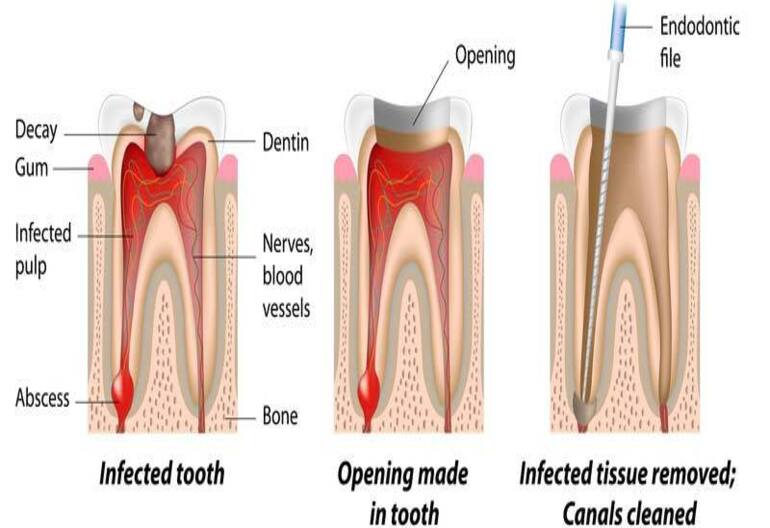

Key Facts to Understand Before Undergoing Root Canal Treatment
Experiencing a sudden toothache and feeling nervous about a dental procedure such as a root canal treatment is a common concern. You are not alone in feeling this way! A root canal treatment is a typical dental procedure that can prevent your tooth from being removed. If your dentist has suggested this treatment, understanding what it entails can make the process much easier.
Here are some essential details to help you feel more assured about your root canal experience:
1. What is a Root Canal?
A root canal is a treatment used to eliminate the infected pulp, which contains nerves, blood vessels, and other tissue, from inside a tooth. The procedure is required to stop further damage or decay of teeth caused by infection or injury.
2. Why Do You Need It?
If the inside of your tooth (the pulp) gets infected due to deep decay, cracks, or injury, it can be very painful. The infection can spread without treatment, leading to abscesses or tooth loss. A root canal helps save the tooth and stops the pain.
3. It’s Not as Painful as You Think
Many people think root canals are painful, but that’s a myth! With modern techniques and anesthesia, most people find the procedure similar to getting a regular filling. In fact, it actually relieves the pain caused by the infection.
4. What Happens During Root Canal Therapy?
Depending on the complexity of your situation, the actual root canal process may take one to two hours. Because of the pressure, you may experience minor discomfort during the procedure. Your dentist will administer a local anesthetic to ensure you don't feel pain throughout the treatment. To ensure the quality of the work, your dentist might need to take X-rays after cleaning and filling the area.
5. You Will Need a Crown
After the root canal, your tooth may get weaker and more likely to damage easily. To protect it, your dentist often recommends placing a crown on the tooth. This gives the tooth strength and restores its function.
6. Healing Takes a Few Days
After completing your root canal, some minor soreness, sensitivity, and edema are normal. If necessary, your dentist may suggest that you take over-the-counter painkillers as these symptoms should go away shortly. Additionally, you must schedule a follow-up appointment with your dentist to ensure your root canal is healing appropriately.
7. The Importance of Follow-Up Care
Remember to follow up after any dental procedure, such as a root canal, to ensure successful treatment. Your dentist may request additional visits to check the healing process and confirm that any infection or decay has been removed. After the root canal, it's important to attend routine cleanings and check-ups recommended by your dentist to maintain the health and strength of your teeth.
8. Preventing the Need for a Root Canal
A regular dental checkup and oral hygiene regimen, including brushing and flossing, can help you prevent the need for a root canal in the future. Important actions include addressing cavities as soon as possible and avoiding harsh meals that can break teeth.
Root canal treatment can be a tooth-saver, allowing you to keep your natural tooth for years to come. With modern dental practices, it's a safe and relatively comfortable procedure. Understanding these key facts can help you feel more prepared and at ease when facing a root canal. If you are facing sudden and persistent tooth pain due to a cavity or any injury and need a root canal treatment in Kolhapur, visit Infinite Smiles for effective solutions.

